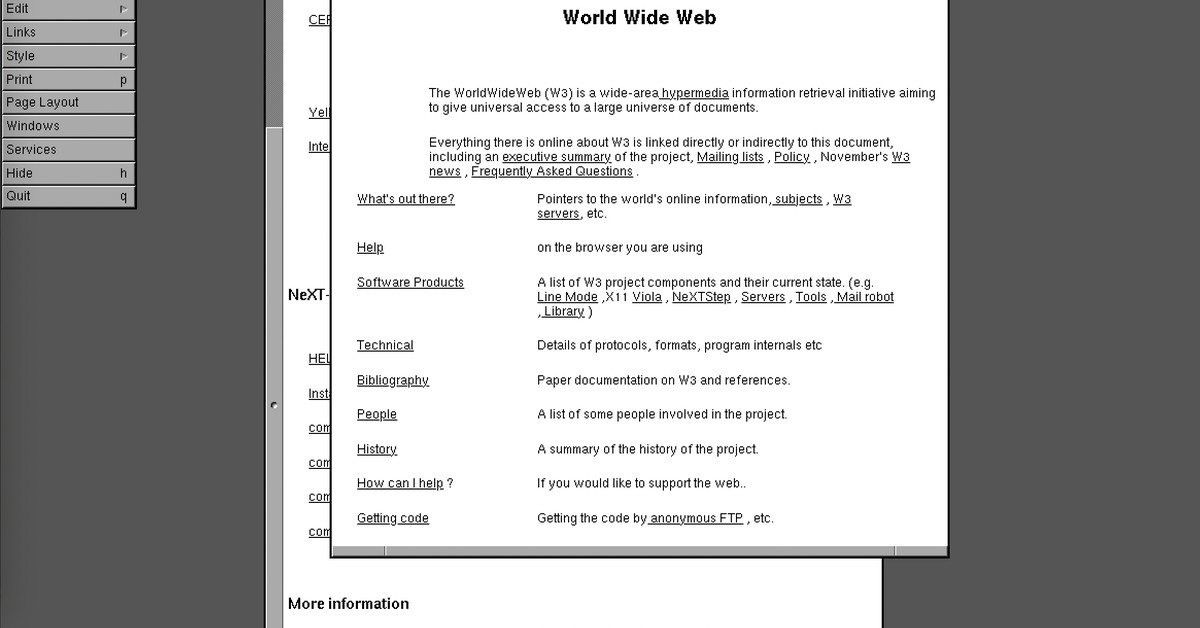
Sir Tim Berners-Lee, one of the architects of the World Wide Web, is selling the source code to the original web browser as an NFT (via the BBC). The auction, being run by Sotheby’s, will not only include the code for the WorldWideWeb browser, but also a letter from Berners-Lee himself, a vector file that could be printed as a poster, and a 30-minute silent video that depicts the code being typed out. According to a press release from Sotheby’s, the proceeds will benefit causes supported by Berners-Lee and his wife.
The code up for auction contains elements of the web that many of us are familiar with today, including functions to parse and display HTML documents, rudimentary styling support, the HTTP protocol, and even the ability to print a webpage.
Berners-Lee seems to think NFTs are a natural fit for code — in the press release, he says that NFTs are “the latest playful creations” on the internet and “the ideal way to package the origins behind the web.” In an interview with Financial Times, he compares the NFT to an autographed book, which just makes me imagine how much cooler this project would be if he had instead auctioned off the code on a signed box of magneto-optical disks that would’ve been used by the NeXT Computer he used to write it.
The NFT’s buyer may have trouble actually running the very first version of WorldWideWeb. As Ars Technica points out, there’s a very early copy of the source code available on the web today (which Sotheby’s says is similar to the code being sold in the NFT, but not the original), and it seems difficult to compile according to CERN’s WorldWideWeb site. Even if the buyer got the original browser running, there are likely precious few websites still around that would work well with it.
Arguably, the web as we know it was made possible by the fact that Berners-Lee decided not to patent or charge for use of his idea, letting anyone with the technical know-how (and computer resources) design their own website. It’s easy to see, then, why some would find creating an exclusive NFT out of it as a bit of an odd choice for Tim Berners-Lee, on top of the environmental concerns around the tech. According to Financial Times, it will be the first time he’s directly profited off his creation — although he says he won’t be keeping that money himself.
If you’d like to see an approximation of Berners-Lee’s original browser, CERN has a replica that you can run right in your modern web browser (though accessing websites from it appears to be broken at the moment). If you’re really looking to grab the NFT, the Sotheby’s auction is running from June 23rd to the 30th, with bidding starting at $1,000.
